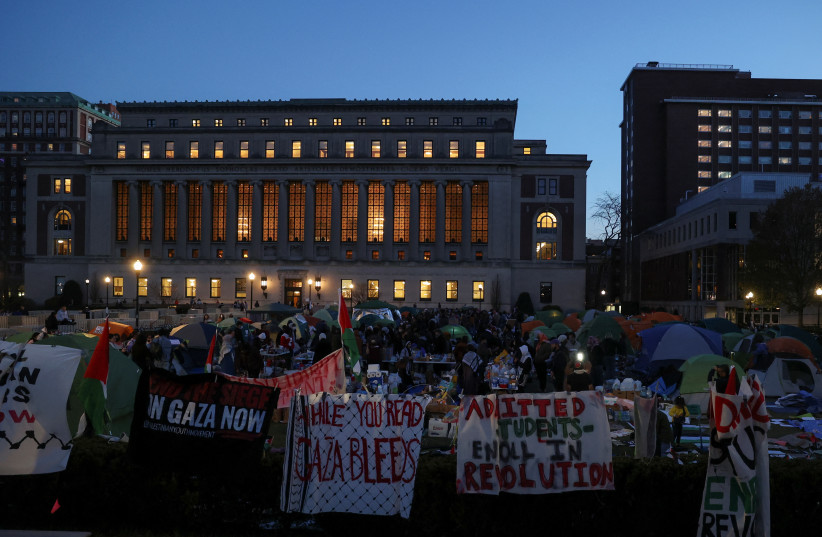Udi Segal and Tal Shalev spoke this Wednesday morning on 103FM radio with Omer Lubaton Granot, an Israeli master's student at Columbia University, who shared his feelings after the widespread pro-Palestinian protests on campus as a reaction to the Israel-Hamas conflict.
"I'm okay, but outside, it's chaotic like you wouldn't believe," he shared, "There are dozens, if not over a hundred, detainees. We are following directions. The students from the protest yesterday broke into the building and shattered windows."
Despite the chaos, Granot recognized some good things that came out of the campus protests.
"It gave the university a reason to investigate matters they've avoided for a long time. There is a lot of criticism about maintaining freedom of expression because it is sacred here, but the students went too far. They closed the campus today. No one could enter."
Lubaton Granot continued, "It's been disrupting the daily routine here for two weeks already. There are people with covered faces walking around here, waving terrorist flags, shouting 'Zionists out,' preventing Israelis from freely walking on campus."

"At a certain point, we waited for the police to come and take assertive action against them. The president asked the police to stay on campus until May 17. There is a need for constant police presence even though they are not a mob, this is not London, and there are not 100,000 protesters here," he noted.
"I read in several places, but not sure if it's confirmed, that among [the protesters] there was a relative of a man who was convicted of terrorism and unrelated to the university. Among the protesters are all sorts of people who are professional provocateurs. But in the end, they are coordinated, inside and out."
"These are the same organizations where many of their leaders are simply on the outside," he concluded and said, "There is a sense of personal threat, and we keep looking over our shoulders. We're careful where we speak Hebrew on campus. We are remaining cautious. Since the beginning of this whole thing, it's been really scary.
